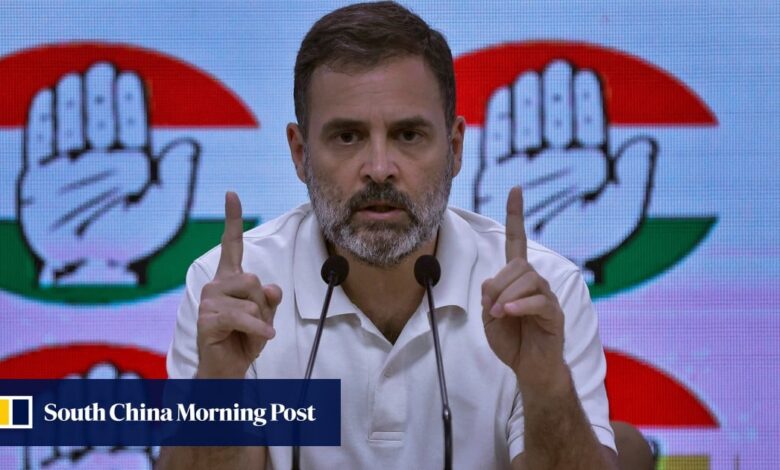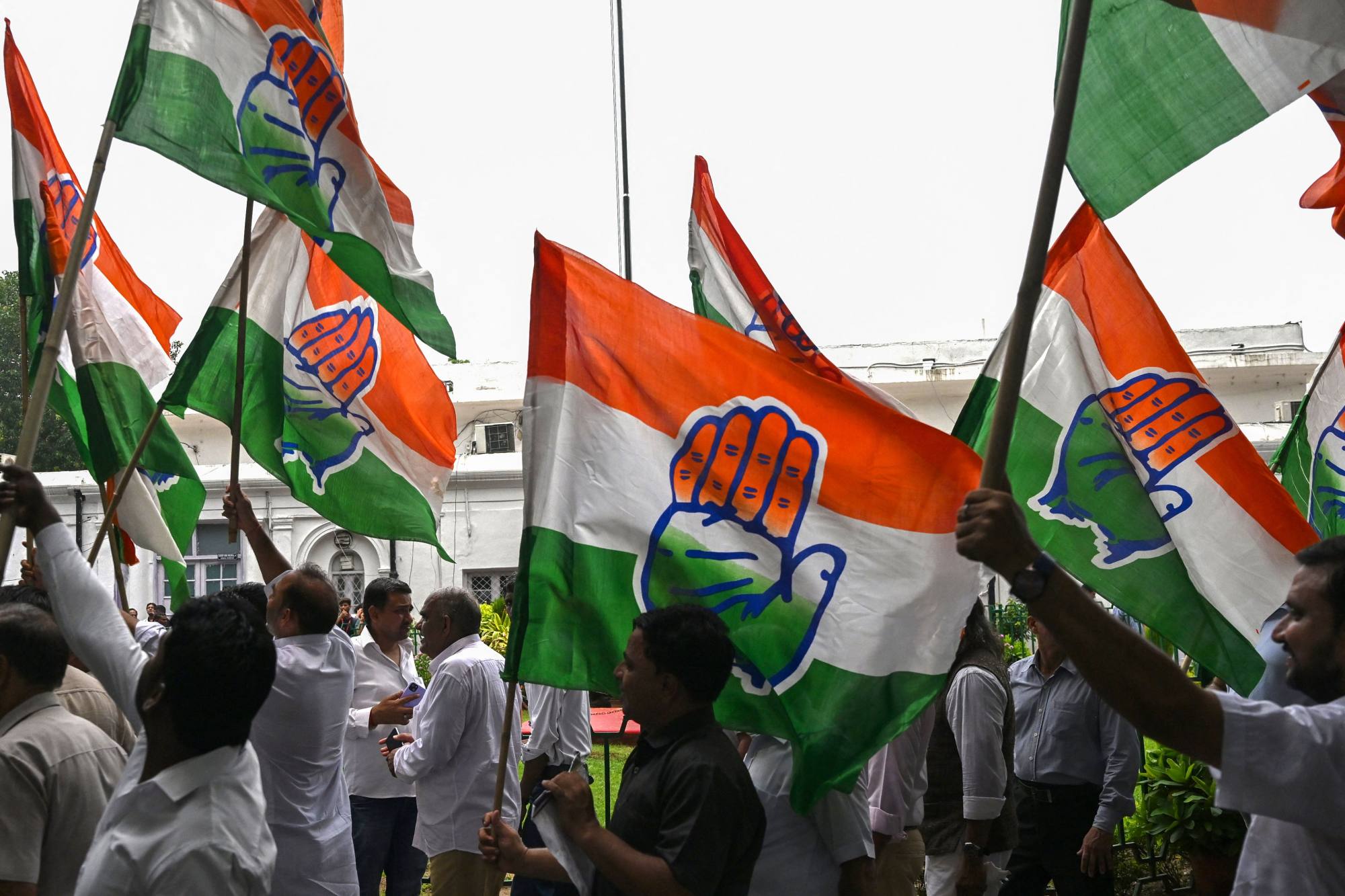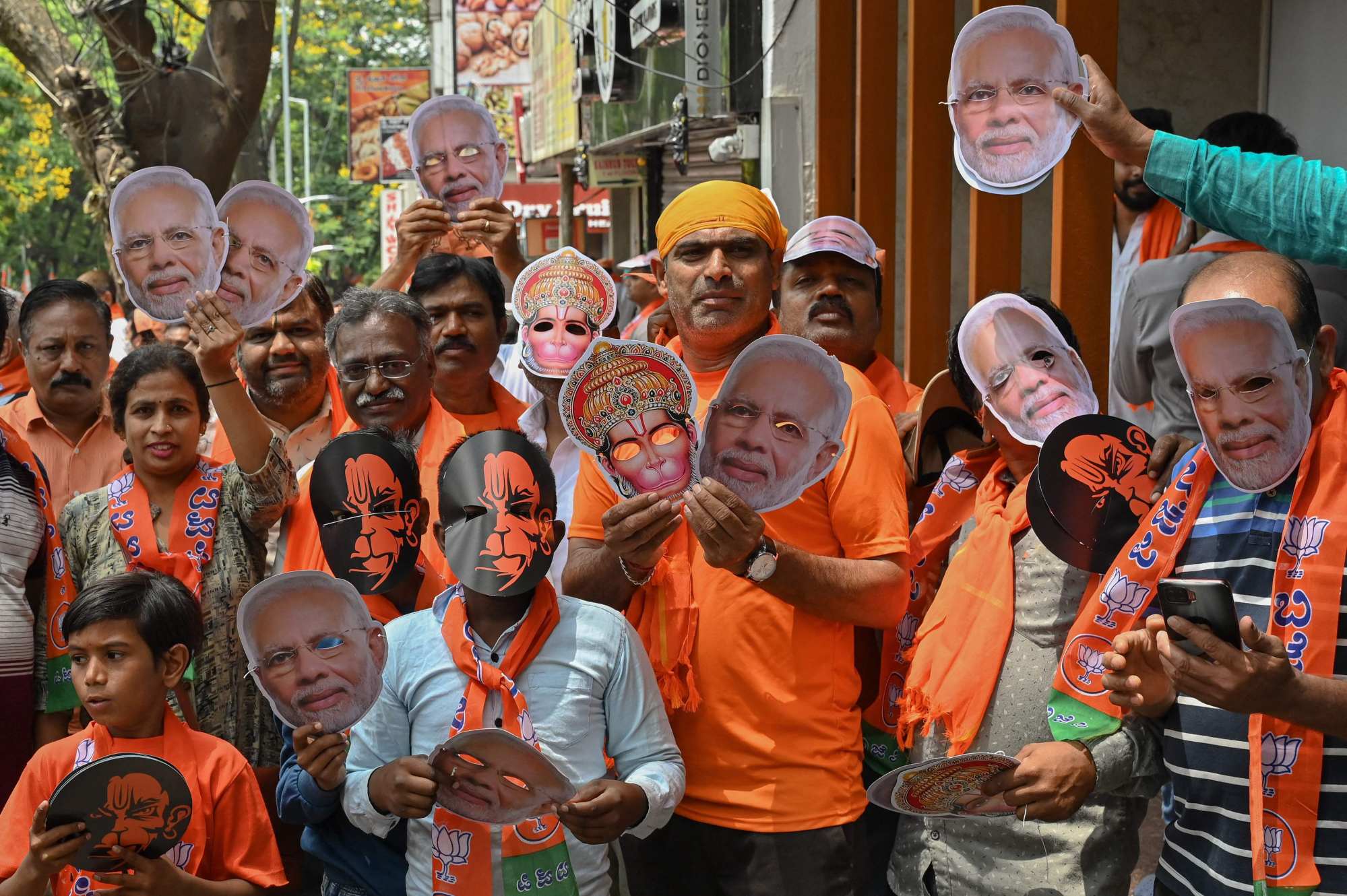Can India’s Congress Party turn tables on ruling BJP in national elections if it ‘certainly wins’ state polls?

“I’d say right now, we are probably winning Telangana, we are certainly winning Madhya Pradesh, we are certainly winning Chhattisgarh. Rajasthan, we are very close, and we think we will be able to win,” Gandhi said on Sunday at a meeting . “That is what it is looking like, and by the way, that is also what the BJP internally is saying.”
Modi faces his biggest test yet as India’s opposition parties unite
Modi faces his biggest test yet as India’s opposition parties unite
Yashwant Deshmukh, founder of research firm C-Voter, said Gandhi’s assessment was in line with the firm’s opinion surveys.
“We have been consistently saying that Congress has a very good chance in Chhattisgarh, Madhya Pradesh and Telangana and has a fighting chance even in Rajasthan. He is picking up the right signals,” Deshmukh said.
“However, where he is getting it completely wrong is about the state assembly elections’ voting intentions, and getting [it] confused with the probability in next year’s Lok Sabha (parliamentary) elections,” he said.
Indian voters had voted for the Congress Party in state elections in Rajasthan, Madhya Pradesh and Chhattisgarh even in 2018, prior to the national elections in 2019.
The behaviour of voters tends to differ for state and parliamentary elections, Deshmukh said.

An opposition alliance under an INDIA bloc comprising 26 regional parties, along with the Congress Party, has been working on a common programme and a seat-sharing arrangement to field candidates against the ruling BJP and its allies in the national elections.
Gandhi said a consensus had been reached for a majority of contested seats and differences for the rest were being ironed out.
The opposition is thinking about the forthcoming national elections in a “fundamentally different way” as the idea of India holding free elections and practising free speech that are hallmarks of a democracy is “under mortal threat as far as the BJP was concerned”, he said.
India’s BJP considers simultaneous federal, state polls to cut costs
India’s BJP considers simultaneous federal, state polls to cut costs
Regional political parties, which have traditionally followed disparate ideologies, did not forge a common alliance in the previous two national elections when the Modi-led BJP came to power.
If the BJP wins next year’s elections, it will secure a historic third term. But chances are that it may not be able to repeat its 2019 feat, when it secured 303 out of 543 seats in the parliament’s lower house, analysts say.
At rallies in Madhya Pradesh and Rajasthan on Monday, Modi attacked the opposition alliance as “ghamandia” (arrogance) and said it had only reluctantly supported a recent landmark legislation to ensure women will account for one in three lawmakers.
Modi also likened the Congress Party to being as dysfunctional as “rusted iron”.

Split poll verdict on cards
The proposal to reserve seats for female lawmakers was first made in 1996 under a Janata Dal-led United Front government, but has until now not succeeded due to opposition by some regional parties.
“All the opposition parties are coming together and the BJP is facing a problem,” Mukhopadhyay said, adding Modi did not seem as confident of returning to power as he was in January.
The formation of the INDIA alliance was an indication of the kind of political heat that opposition parties are facing from the BJP to their political survival, Mukhopadhyay said. “The attack on the Indian model of democracy is on all sides. The democratic institutions are being weakened.”
Modi’s discomfort was evident from the government’s sudden five-day parliament session earlier this month, sparking speculation that national elections may be brought forward from April to May next year, Mukhopadhyay said.
Why India’s new trade corridor to Europe is no ‘anti-China project’ for the Gulf
Why India’s new trade corridor to Europe is no ‘anti-China project’ for the Gulf
The Modi-led BJP government is still seen as the strongest contender to the federal government, analysts say.
The India Opposition Alliance is likely to make inroads into BJP’s political constituencies in the national elections, but it is unlikely to unseat the BJP-led National Democratic Alliance, said Sandeep Shastri, director of academics at the Nitte Education Trust and national coordinator of the Lok Niti network that studies elections.
Poll fortunes will depend on the extent the Congress Party is able to resolve differences and forge a partnership with regional parties in sensitive states such as Punjab, Haryana and Delhi in northern India, West Bengal in eastern India and Kerala in the south, Shastri said.
“In the next six to seven months, if there are major changes, then the game is still open.”

